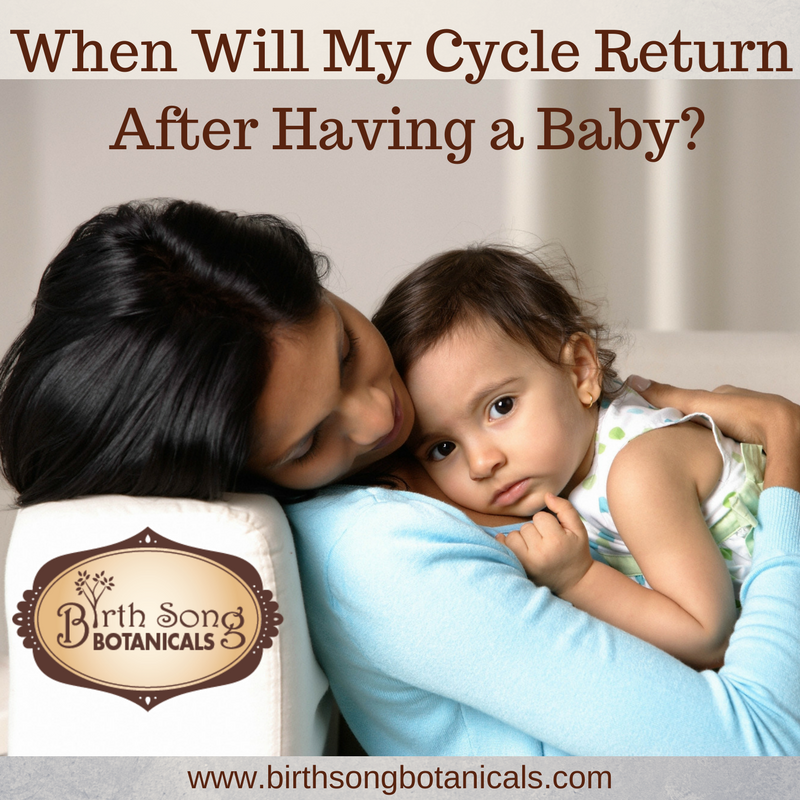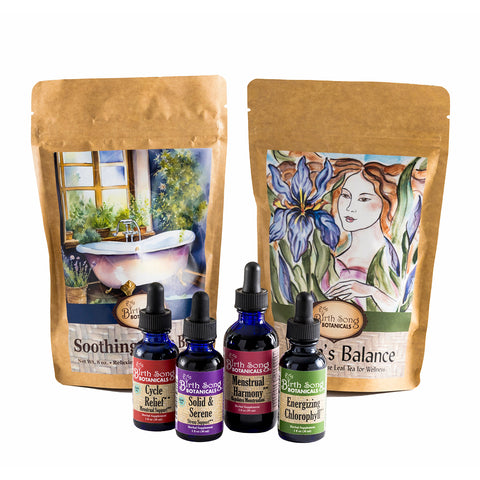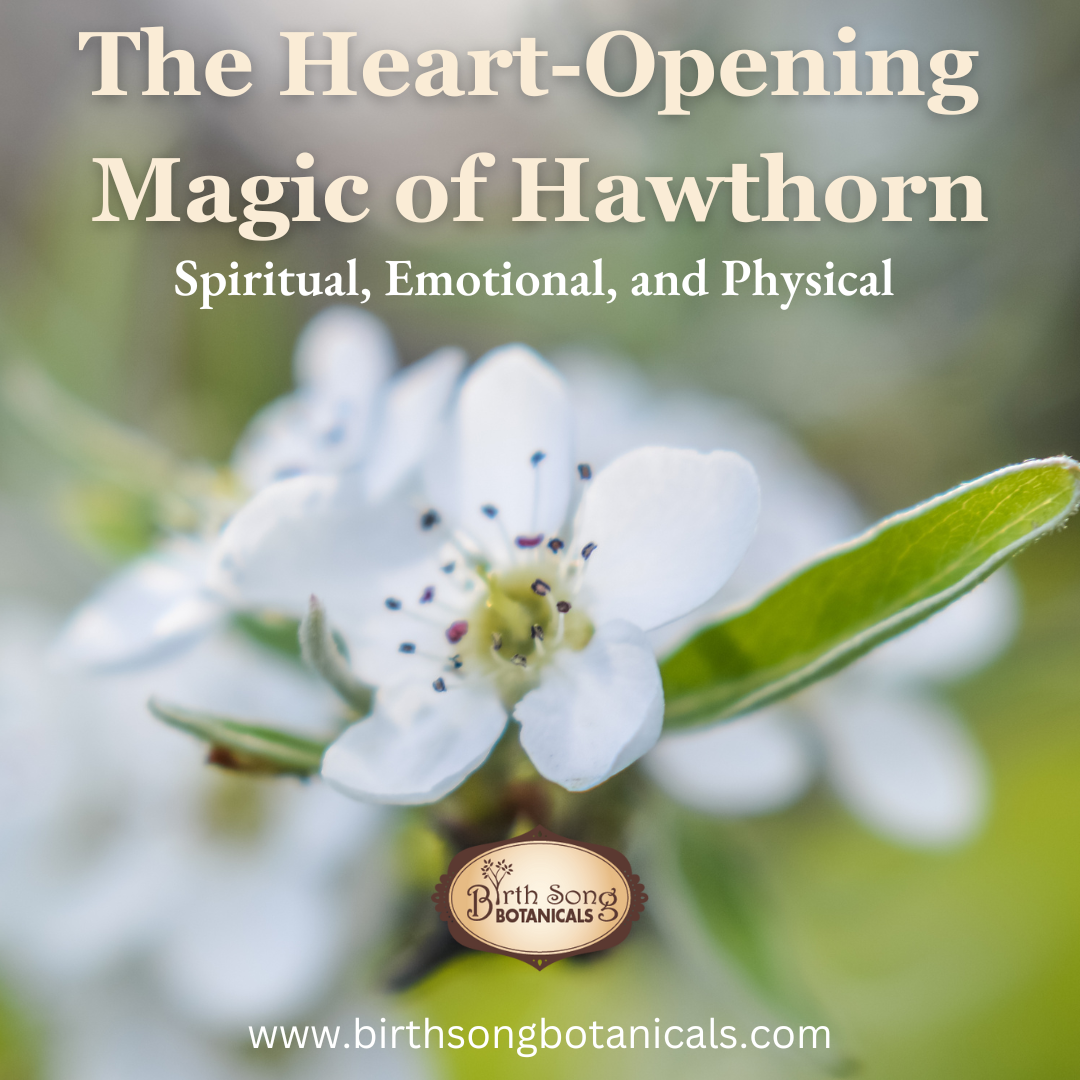Your Menstrual Cycle While Breastfeeding

Today we are answering the popular question that new moms ask. Which is when will my period come back after giving birth? We are exploring the powerful relationship between menstruation and lactation. The intricacies of the human body are almost magical, with no one system or function working entirely on its own. Within a mother's body, the processes that lead to menstruation, pregnancy, birth, and breastfeeding are all interconnected. Just a handful of hormones can dictate each of these functions, with different organs and actions responding in their own way. A fascinating and, sometimes, a bewildering example of this is the relationship between menstruation and breastfeeding.
Listen on SoundCloud:
Watch on Youtube:
When Will Your Menstrual Cycle Return After Giving Birth?
When will my period come back is a common question new moms ask. Remember, we are not cookie-cutter women. We are all biologically and hormonally unique women. So, generally speaking, if you are not exclusively breastfeeding your newborn, your period may return about six to eight weeks after giving birth.
For exclusively breastfeeding moms, there are no hard and fast rules about when their menstrual cycle will return. However, one of the many benefits of breastfeeding your newborn baby is your menstrual cycle might not return for several months. Commonly it returns within 6 -12 months. Going a year without a period after giving birth is not uncommon. I went 14 months before my monthly cycle returned!
Several Factors Influence Fertility and Menstruation
Several factors influence the return of your menstrual cycle during your postpartum phase. How long does it take for your body to return to its full fertile and menstrual cycle? And what's involved? Meaning that you need to start ovulating again; your uterine lining needs to thicken and prepare to nurture a fertilized egg. You need the appropriate levels of Progesterone, Estrogen, Luteinizing Hormone, and Follicle Stimulating Hormone to stimulate the menstrual flow.
Knowing that women are unique, we understand the factors that influence female fertility while nursing will affect women in different ways. Take time to nurture your relationship with your body so you can recognize the signs of fecundity. Be mindful of your own body and its fertility signals - such as the consistency of vaginal fluid, breast sensitivity, and mood changes. Know and understand your body, its rhythms, and hormonal responses. Trust that your body will respond and transition from the infertile postpartum phase and return to the fertile cycle in its own time and beautiful way!
What to Expect From Your First Period While Breastfeeding
When your period starts again, expect it to be a little different than your periods before you got pregnant. Remember, your body and hormones are adjusting to menstruation after several months of being dominated by pregnancy and breastfeeding hormones Prolactin and Lactogen.
You May Experience:
- You might feel like your flow is about to start and it doesn't
- Or your flow might stop and start a few times before it synchronizes and becomes your new normal
- Your cramps might be painful and stronger or lighter than before
- You might have more clots
Now that you just started your period, you are no longer just breastfeeding mom. You are now a menstruating and breastfeeding mom who has an even stronger demand for self-care. While menstruating and breastfeeding, remember that your body needs to replace the nutrition it's releasing. Calcium/magnesium, iron, and herbs that boost breast milk supply are all helpful for optimal health and milk production. Eat a healthy breastfeeding diet rich in vitamins and minerals, drink plenty of pure water, get ample sleep, self-time, guided meditations, journaling, herb baths, walks, yoga, Qigong, drinking nourishing herbal infusions along with a "mommy stash" of high-quality chocolates or other preferred treats are now essential parts of your normal routine.
If you are not getting the chance to do or have these things, then let's find a way to make that happen. These are not a luxury; they are non-negotiable and are foundational to your physical, emotional, and spiritual health as a woman and as a mother. You are so important! Your the heart of your family, everyone needs you to be as healthy and supported as possible.
The new addition of your monthly cycle brings along with it lots of new emotions, tears, and, for some, the fear of getting pregnant again, on top of being depleted because of heavy periods and nursing.
You might also notice a temporary dip in your breastmilk supply, and suddenly your nipples are sore when your baby nurses. The drop in your supply is normal and will stabilize after your period ends. With that in mind, your little one may notice a change in the taste of your breast milk. Don't get too concerned if your baby is restless or disinterested in nursing as much. Fortunately, it shouldn't last for more than a day or two before returning to normal. Let There Be Milk! can help keep your breastmilk supply up to where it needs to be.
The breast tenderness and nipple soreness that you feel during your cycle is the result of the same hormone shift that occurred during early pregnancy. Those moms that have tandem nursed during pregnancy understand what I'm talking about. Be gentle with yourself and your baby during this short period of time. Treat yourself to Nipple Salve and a good bra (or go without, whichever is more comfortable!) until the soreness passes in a day or two.
How Frequency of Breastfeeding Impacts Menstruation
Breastfeeding has a much more pronounced effect on menstruation than the other way around. Some women with closely spaced children might go years without seeing a menstrual cycle because of the powerful relationship between these processes.
This relationship is so profound, in fact, that it can serve as a means of pregnancy prevention in the first six months after birth.
Although it is unlikely that you would get pregnant if your period has not returned, it is absolutely possible. So, be careful, learn the Fertility Awareness Method. Or at least learn how to recognize what fertile cervical fluid looks like. We made a post about it for you to refer to if you need a refresher. I always tell my clients, the day your partner looks really hot, and you want them right now, assume you are ovulating. Unless you welcome a new pregnancy, do yourself a solid and use a reliable form of birth control that is compatible with breastfeeding.
Nonetheless, I'd like to share this from a La Leche League discussion:
The biggest effect of breastfeeding on menstrual cycles is seen in women who practice what is known as "ecological breastfeeding." As explained by Sheila Kippley in Breastfeeding and Natural Child Spacing, The Seven Tenets of Ecological Breastfeeding are:
- Exclusive breastfeeding (no other liquid or solid from any other source enters the infant's mouth) for the first six months of life
- Comfort your baby at the breast
- Don't use bottles and pacifiers
- Share sleep with your baby for night feedings
- Share sleep with your baby for daily nap feedings
- Nurse frequently day and night and avoid schedules
- Avoid any practice that restricts nursing or separates you from your baby.
These are excellent tips and are ideal for a long, successful nursing relationship. And this kind of close, biologically normal breastfeeding practice may delay or suppress the return of menstruation by anywhere from several months to a year or more after birth in some women.
Let's be clear, the return of your menstrual cycle does not mean that you aren't breastfeeding properly, of course -- as with anything, there is a wide range of normal. It does mean that you are potentially fertile. It's also possible to ovulate while breastfeeding and become pregnant again without ever seeing a menstrual period.
I also want to chime in and say that that list is an idealized list. Real-life determines what and how you actually nurse your baby. Giving your baby a bottle, a pacifier, and going back to work is called real life. You are doing everything right. The only thing is you might get your period sooner than the woman who follows the 7 tenents. Is that really such a big deal?
Regulating Your Baby's Nursing Times Can Affect Your Fertility
How often your baby nurses in 24 hour period sends a significant signal to your body. If you are nursing on demand (whenever your baby shows an interest) throughout the day and night, this will most likely suppress your period for many months postpartum. Most women who nurse on demand and do not supplement in any way, don't have a return of their menstrual cycle for at least 6 months.
If you decide to night wean, or return to work, the drop-off in the frequency of nursing sends a signal to your body that you are ready to be pregnant again. Usually, your menstrual cycle starts soon after.
Night Weaning
Evidence suggests the frequency of night nursing, in particular, significantly affects fertility. If you want to bring your fecundity back sooner rather than later, and your baby is older than 6 months, try spacing out the frequency of night nursing or cutting out one night nursing session at a time. Be gentle with yourself and your baby, though - especially for a baby who is used to unlimited access to your breast at night, night weaning can be challenging. You will need your partners to support with this! Ask them to step in and put your baby in the sling and walk some laps around the living room, or rocking the baby back to sleep to help ease the transition of night weaning.
Introduction of Solid Foods
Somewhere around 6-12 months, your baby will begin to show interest in solid foods. Although there is no set time when your baby is "ready," you can gauge interest by how your baby responds when you are eating. Does your baby lick her lips and act excited when she sees you eat? Does he sit up well on his own and have good control of his neck and head? Has he lost the tongue-thrust reflex? Just like with the norms for breastfeeding, there is a wide variation of normal when it comes to your baby eating solid foods. I have had clients whose babies started solids at 6 months, were excited to eat, and soon began to eat multiple times a day. I've also had clients whose babies weren't really interested in food until after their first birthdays. Whenever your baby starts to get a good amount of nutrition from solid food, they will naturally stop nursing as often or as long. This is one of the prime signals to your body that it is time to be fertile again.
Your body is wise and connected to what your baby needs. Although it is not a good idea to rely on breastfeeding as your only source of birth control, it is comforting to know that your fertility will most likely not return for at least several months. When your cycle does return and if you don't wish to get pregnant, don't forget to use birth control. There are many forms of birth control that are compatible with breastfeeding, and that will allow you to continue to breastfeed for as long as you and your baby desire.
Remember, we are here to support you! Our Birth Song Blog as tons of posts about breastfeeding and about menstruation. Yes, there are normal fluctuations that are uncomfortable that last a few days. And there are times that you really could use the support from the herbs to help with the discomfort of your cycle, help improve iron levels, and help maintain your breastmilk supply. All the herbal remedies mentioned have associated links to make ordering easy. You can find everything we talked about today on www.birthsongbotanicals.com, Amazon, Walmart, and Etsy.
Until next time my friends, drink deep and always walk in beauty!
Hugs,
Maria
🌿
🌿Want More?!? Check these out!🌿
Herbal Products for PMS:
Blog Posts:
- 7 Common Causes of Period Spotting
- How to Enjoy Your Period
- Four Ways to Increase Fertility Naturally
- Herbal Remedies for Heavy Period Bleeding in Perimenopause
- When Will My Menstrual Cycle Return After Having a Baby
- What You Should Know About PCOS
- Tracking Your Cycle: With The Fertility Awareness Method
- How to Plan or Prevent Pregnancy
- Menstrual Cycle Syncing with Moon Phases, Herbs and Qigong
- Harnessing the Power of Mugwort and the Moon
- Balancing Hormones with Seed Cycling
- The Incredible Benefits of Shatavari for Women’s Health
- Yoni Steam- The Sacred Origin, The Herbs, and How To Steam
- Womb Food Eat These Four Foods To Improve Your Uterine Health
- Natural Remedies for Bacterial Vaginosis BV
- Black Cohosh for Hot Flashes in Menopause
- Natural Ways to Boost Testosterone In Women During Perimenopause and Menopause
- Botanica Erotica: Exploring Sensuality and Aphrodisiac Herbs
- Treating a Urinary or Bladder Infection Naturally: An Informative Guide
- A Woman's Guide to Uterine Fibroids
- Herbs for Hot Flashes in Menopause
- St. John's Wort: For First Aid, Nerve Pain, and Mood Support
Remember to:
Like our Birth Song Botanicals Facebook Page
Follow Birth Song Botanicals Co. on Instagram
Read our Birth Song Botanicals Blog
Watch Birth Song Botanicals on Youtube
Listen to Birth Song Botanicals on SoundCloud
Be inspired by Birth Song Botanicals on Pinterest















